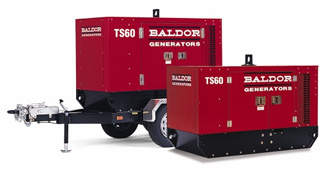SAVINGS LIVES: ELECTRIC POWER GENERATORS IN HOSPITALS & PRISONS ARE ESSENTIAL
Copyright © 2007 Will Gruver
Anyone who has ever seen reruns of MASH can appreciate the importance of power generators in both medical facilities and military bases. In almost every episode it seemed, one of the characters would be hunched over a body on the operating table yelling for someone to fix the generator.
Yet only on a television series, one can see the importance of continuous access to power, which is amplified when the situation becomes life and death. In the real world as well, there are countless instances where the magnitude of having portable power generators is highlighted, especially in life or death situations.
Hospital Generators
One of the most significant uses of generators can be found in hospitals. Surgeons in the operating room cannot afford to be without power, even for a moment. The lives of other people are literally in their hands and risking the death of patients is never an option.
There are few things in America more important than the care and preservation of life. All measures imaginable for caring for a person and preventing their demise are taken at hospitals concerned with preserving existence.
Hospitals rely heavily on back-up generators to maintain life-sustaining equipment. Any loss of power, even for a few minutes, could result in the mass death of patient’s dependant on ventilators and heart monitors.
Unlike typical emergency generators, the back-up system hospitals use has to go into effect almost instantaneously. Traditional generators require someone to start them and refill their gas supply. This would be a devastating wait for anyone needing a machine to breath for him or her.
Instead, hospitals have complex and sophisticated systems designed to kick in the second the power fails. Most generators have to be regularly refilled and can shut down when they run out of fuel.
Making sure that an essential generator never fails is accomplished by connecting the generator directly to the natural gas line of the hospital. In the event of an emergency the gas lines would still be able to properly supply fuel to the generator and, by extension, the hospitals.
Prisons
Hospitals are not the only facilities that require constant power. Power outages in prisons can also have disaster effects.
Prisons are packed with people who willfully disregard authority. Security measures are taken to ensure that they cannot leave. Many of these measures are done electronically.
The loss of power in a place that relies on electricity for security purposes can prove just as fatal as a loss of power in a hospital.In addition to security measures, prisons rely on electricity for ventilation systems and basic living standards. Jails are frequently overcrowded and men are cramped into spaces much to small for them to properly function, when the climate control systems goes out.
The basic premise of prison architecture is that there are multiple containment areas between the prisoners and the outdoors. Without electricity to pump air into the facility, oxygen levels can plummet quickly.
Additionally, the climate in an unventilated structure teaming with life can quickly rise to stifling levels, making comfort impossible. While comfort is not a serious issue, heat related injuries such as heat stroke are serious issues that all prison administrators have to contend. If a prisoner is spending a short amount of time in prison, and that person dies in prison as a result of a power loss and uninhabitable living conditions, then the prison administrators could find themselves financially liable for the death of their inmate.
Emergency back-up generators are very important to the health of inmates. While the speed with which they come on is not as important as it is for hospital generators, their durability is certainly critical.
Like hospitals, prisons typically have generators that tie into both their primary electrical system and their gas line. Their size is substantial, as they have to provide power to a considerable amount of space.
In Conclusion
We often take our world for granted. We assume that it will maintain its basic conditions indefinitely. For these reason, many do not properly prepare for emergencies.
Facilities that rely on electricity to save and maintain life do not have the option of simply not having the resources they need. Emergency generators have saved countless lives over the years, since their creation.
Proper installation and maintenance can insure that they continue to save lives for many more years to come. Emergency back-up generators that automatically begin providing power at the point of a power loss are tremendous investments for any institutional administrator concerned with preserving life.
About The Author:
Written by: Will Gruver of US Power & Environment. USPE's Eden Prairie, MN headquarters, assisted by in-house product technical and operations specialists, has the experience gained from supplying, installing and maintaining on-site energy systems across the country and around the world. They buy, sell, rent and repair natural gas and diesel power generators. To learn more, visit their website at: http://www.uspowerco.com or give them a call at: 877-772-6018







